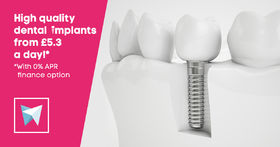Tartar is actually just a layer of calcified plaque, which sticks to tooth surfaces and cannot be removed using at home oral hygiene methods. Tartar tends to become larger and larger, and provides home for a myriad of bacteria which thrive on it excreting acids and ruining your teeth. This leads to inflammation, tooth decay and gingivitis. A deep cleaning or hygiene session serves to remove this nasty layer of gunk.

When do you need it?
If you have some yellow stains on your teeth that stay on even after you brush, then you may be dealing with tartar. If there is a substantial amount of it on your tooth surfaces, it is time to go and get it removed. If you want to be sure that you are free of tartar, go and get it removed around once a year. You can get the tartar removed at every second recommended half year check-up, too!
What you can expect from an oral hygiene session?
An oral hygiene session is performed by either the dentist or the dental hygienist, or possibly a well-trained assistant. They will explain everything they are going to do in detail. After this, an ultrasonic hand device will be used to loosen the plaque off of the tooth surfaces. After removing all of the plaque, your teeth will be polished as well, to make them smooth and to prevent plaque from sticking to it in the future. You may want a mirror to see where the most plaque can be found, so you can concentrate on those areas when you brush.
Ask for advice
You may think that brushing your teeth is completely arbitrary, but we urge you to ask for advice after your cleaning session - the dentist will surely be glad to show you how to brush properly.
How much will a deep cleaning cost?
A professional deep cleaning is one of the cheapest services that dentists can provide. The price depends on how long the dentist has to work with your teeth, which is depends on how much tartar has to be removed. Our dental practice has three categories; the shortest one takes only fifteen minutes. For our prices, click here. Always make sure to ask how long the session will last, so you have an idea of the price you will be paying at the end.
How long will it take?
The shortest session is fifteen minutes. Only few patients fit into this category, though: those that do not accumulate tartar easily, take really good care of their teeth, and make use of both dental floss and mouthwash, and come regularly for a hygiene session.
The average patient will spend between 15 and 30 minutes in the chair, but some patients will need a longer appointment, because they have a propensity for tartar, smoke, or have improper tooth cleaning habits.
What to ask your dentist after your hygiene session:
- Ask for a diagnosis of your gums and make sure you do not have gingivitis
- Ask if they see any signs of gum recession
- Ask if you brush too hard or not
- Ask if they see any signs of bruxism
- Ask them to show you how to brush your teeth effectively
Our actual offers
More information about dental hygiene session


 Call
Call Send
Send Find us
Find us Connect
Connect